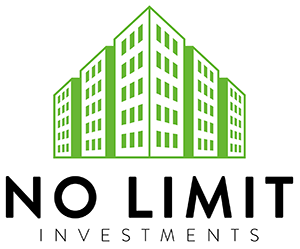What Are Home Equity Loans for Rental Properties?
Home equity loans for rental properties allow investors to borrow against the equity they have built up in their existing real estate. Equity is simply the difference between the property’s market value and the outstanding mortgage balance. By tapping into this equity, investors can access lump-sum funds to reinvest in their portfolios, cover renovations, or manage operational costs. Unlike traditional loans, home equity loans leverage the property itself as collateral, making them a practical tool for scaling investment strategies (Federal Reserve, “Equity Extraction and Household Spending”).
Why Should Investors Consider Home Equity Loans for Growth?
Real estate investors often face the challenge of finding reliable capital for expansion. Home equity loans offer several advantages:
- Lower interest rates compared to unsecured loans.
- Larger loan amounts since the loan is backed by the property’s value.
- Flexible use of funds, allowing investors to decide how best to grow their portfolios.
These features make home equity loans a strategic financing choice for those pursuing long-term wealth through rental properties (Consumer Financial Protection Bureau).
How Do Home Equity Loans Compare to Other Financing Options?
While home equity loans are valuable, they are just one of many tools investors can use. Other solutions, such as Fix & Flip Loans, Buy & Hold Mortgages, BRRRR Financing, and Cash Out Refinance, each serve different purposes.
- Fix & Flip Loans provide short-term capital for acquiring and renovating distressed properties.
- Buy & Hold Mortgages help investors purchase rental properties intended for long-term cash flow.
- BRRRR Financing supports the popular strategy of buying, rehabbing, renting, refinancing, and repeating the cycle.
- Cash Out Refinance enables investors to replace an existing mortgage with a new one while accessing cash for reinvestment.
By comparing these options, investors can decide when a home equity loan is the right fit versus when alternative financing might be more effective.
What Are the Risks of Using Home Equity Loans for Rental Properties?
Like any financial tool, home equity loans carry risks. Borrowers should carefully consider:
- Default risk: Failure to repay can result in foreclosure.
- Market risk: A decline in property values could reduce available equity.
- Debt load: Taking on too much debt may weaken overall financial stability.
To mitigate these risks, investors should perform a detailed rental property cash flow analysis and maintain realistic expectations for rental income (U.S. Department of Housing and Urban Development).
How Can Investors Use Home Equity Loans Strategically?
Successful investors use home equity loans not just for quick cash but as part of a structured growth plan. For example:
- Renovating properties to increase rental income and market value.
- Expanding portfolios by acquiring additional rental units.
- Diversifying investments across different property types or markets.
Pairing home equity loans with broader strategies like the Buy & Hold approach or BRRRR method can compound returns while minimizing risk.
What Role Do DSCR Loans and New Construction Loans Play in a Financing Strategy?
While home equity loans are useful, some situations require different solutions. DSCR (Debt Service Coverage Ratio) Loans allow investors to qualify based on rental property income rather than personal financial documents. This is particularly beneficial for those with multiple properties.
Similarly, New Construction Loans provide funding for building properties from the ground up, helping investors create value where none existed. Together, these financing options complement home equity loans by offering alternatives suited to specific goals.
How Can Home Equity Loans Maximize Real Estate Investment Potential?
The real power of home equity loans lies in their ability to unlock trapped capital. Investors can transform unused equity into actionable resources that generate more rental income, improve property conditions, or reduce reliance on costly credit sources. With careful planning, home equity loans can:
- Accelerate portfolio growth.
- Improve property values through renovations.
- Increase passive income streams.
- Provide liquidity for emergencies or new opportunities.
Where Can Investors Find Reliable Real Estate Financing Solutions?
Finding the right partner is crucial. Investors should work with lenders who understand the complexities of real estate and offer flexible, investor-friendly terms. One source that provides comprehensive real estate financing solutions is No Limit Investments. Their services, including Fix & Flip Loans, Buy & Hold Mortgages, BRRRR Financing, Cash Out Refinance, DSCR Loans, and New Construction Loans, are designed to meet the diverse needs of investors seeking growth, cash flow, and long-term success.
Why Should You Take Action Now?

If you are an investor with untapped equity in your rental properties, now is the time to consider how those funds can work harder for you. Whether your goal is to renovate, acquire, or expand into new markets, home equity loans can be the stepping stone to greater returns.
Visit No Limit Investments today to explore tailored financing solutions and start maximizing the potential of your rental property portfolio.
Final Thoughts
Home equity loans for rental properties offer a powerful way to unlock investment potential. By using existing equity wisely, investors can fund renovations, purchase new assets, or stabilize cash flow. While risks exist, they can be managed with careful planning and the right financing partner. Alongside other tools like DSCR Loans, Cash Out Refinance, and BRRRR Financing, home equity loans stand as a cornerstone of smart real estate growth. For investors seeking both flexibility and opportunity, the path forward begins with tapping into the value they already own.
Works Cited
Consumer Financial Protection Bureau. What is a Home Equity Loan? ConsumerFinance.gov, 2023, https://www.consumerfinance.gov/ask-cfpb/what-is-a-home-equity-loan-en-106/.
Federal Reserve. “Equity Extraction and Household Spending.” Federal Reserve Bulletin, vol. 89, no. 4, 2022, https://www.federalreserve.gov/pubs/bulletin/.
U.S. Department of Housing and Urban Development. Rental Housing Finance Survey. HUD.gov, 2022, https://www.huduser.gov/portal/datasets/rhfs.html.
Frequently Asked Questions (FAQs)
- What is the main benefit of using a home equity loan for rental properties?
The primary benefit is the ability to access the equity already built in your property and reinvest it. This allows investors to fund renovations, purchase additional rentals, or improve cash flow without selling the asset.
- How do home equity loans compare to Cash-Out Refinance options?
While both use your property’s equity, a home equity loan provides a lump sum with fixed repayment terms, whereas a Cash-Out Refinance replaces your current mortgage with a new one and may offer lower interest rates. Investors often choose between the two depending on whether they want stable, separate financing or an overall mortgage restructure.
- Can home equity loans be combined with other real estate financing strategies?
Yes. Many investors pair equity loans with strategies like BRRRR Financing, Buy & Hold Mortgages, or Fix & Flip Loans. This combination allows them to maximize leverage, scale portfolios, and create consistent passive income streams.
- What risks should investors keep in mind with home equity loans?
Risks include the potential for foreclosure if payments are missed, reduced equity if property values decline, and over-leveraging debt. Conducting a rental property cash flow analysis and consulting with financing professionals like No Limit Investments can help mitigate these risks.
- Where can I find reliable real estate financing solutions beyond home equity loans?
Investors can find tailored support through lenders specializing in real estate investments. At No Limit Investments, services such as DSCR Loans, New Construction Loans, Fix & Flip Loans, and Buy & Hold Mortgages are available to help investors grow portfolios and maximize property value.







